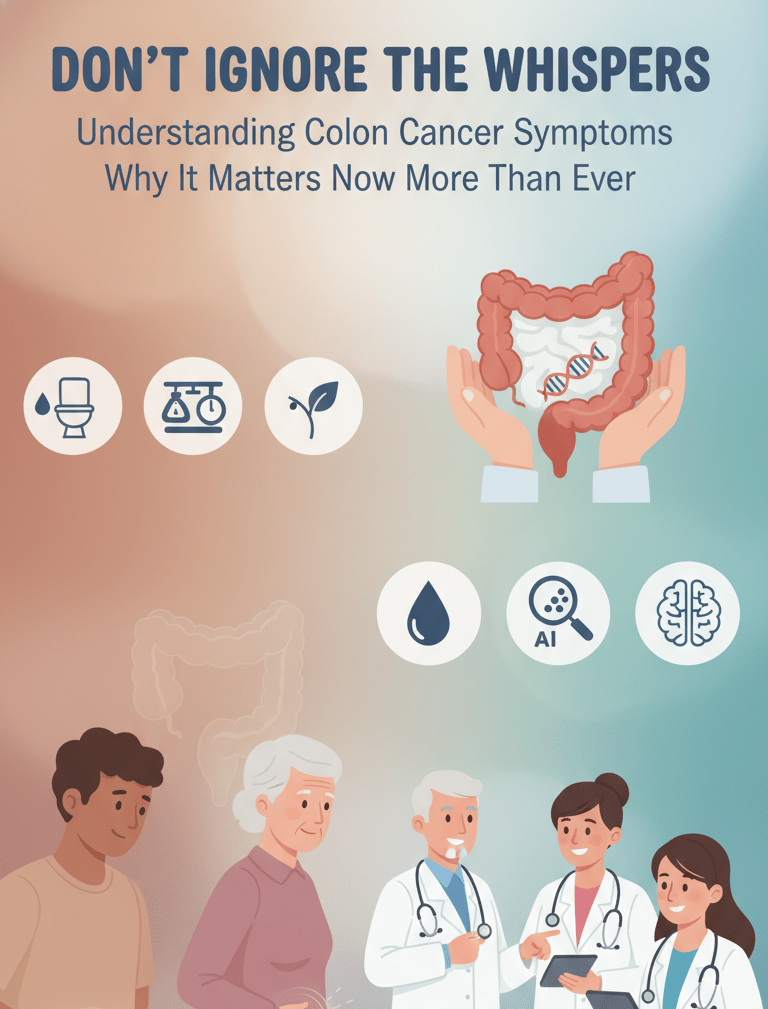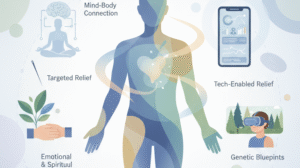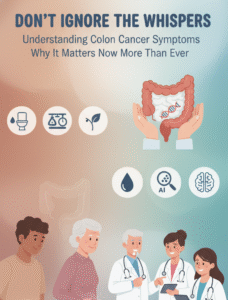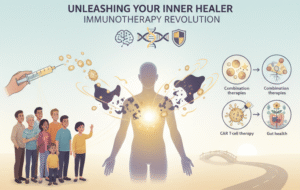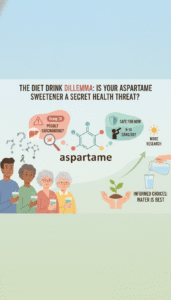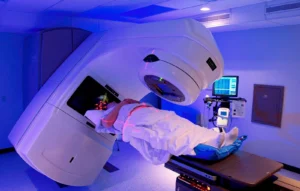Your gut health is more important than you think! It’s easy to take it for granted until something goes wrong.
Colon cancer, also known as colorectal cancer, starts in your large intestine. Usually, it begins as tiny growths called polyps. Most polyps are harmless, but some can turn into cancer over time. Colon cancer is a leading cause of cancer deaths worldwide, but it often sneaks up on you without early symptoms.
Here’s what’s alarming: While colon cancer is usually seen in older adults, there’s a troubling rise in cases among younger people. We’re talking about those under 50, and it’s projected to be a top cancer killer for young adults by 2030. This isn’t just an “old person’s disease” anymore!
Your Body’s Warning Signals: Symptoms & What Doctors Say
Your body is always talking to you. You just need to know how to listen. Here are some key “red flag” symptoms to watch for when it comes to your colon:
- Bowel Habit Blues: Have you noticed persistent diarrhea or constipation? Are your stools thinner than usual? Do you feel like you never fully empty your bowels?
- Bloody Details: Any blood in your stool (bright red, dark, or tar-like) or rectal bleeding should be checked out. Don’t just assume it’s hemorrhoids!
- Tummy Troubles: Ongoing cramps, gas, pain, or bloating that just won’t quit can signal a problem.
- Mystery Weight Loss: Losing weight without trying is a sign that something might be off.
- Energy Drain: Constant tiredness and weakness, often due to anemia, can be related to colon issues.
Doctors are increasingly vocal about these symptoms: If they stick around for a few weeks, get them checked out ASAP. They might be something less serious, but it’s crucial to rule out colon cancer. Regular screening, now recommended from age 45 for average risk individuals, is vital. Screening can catch polyps before they become cancerous.
The Elephant in the Room: Why We Miss It (And the Debates Surrounding It)
We often dismiss these symptoms as minor or attribute them to other common issues like irritable bowel syndrome (IBS) or hemorrhoids. There’s also a societal reluctance to openly discuss bowel health, which doesn’t help.
The biggest controversy? The dangerous misconception that colon cancer only affects older people. This can lead to long delays in diagnosis for younger patients, who may be “ping-ponged” between doctors who might initially overlook their symptoms. This often results in diagnoses at more advanced, harder-to-treat stages.
Even screening has its debates. A recent European study (NordICC) got headlines for suggesting colonoscopies were less effective than thought. However, a closer look showed high non-participation skewed the results. Experts generally agree that colonoscopies, while invasive, are still the gold standard for prevention and detection. Plus, differing guidelines among health organizations can confuse everything.
The Future is Bright: New Tools & Treatments on the Horizon
Get ready for less invasive ways to check your colon! Science is making great strides toward that goal.
- Liquid Biopsies: Blood tests like Guardant’s Shield are now FDA-approved to detect cancer DNA in your bloodstream, offering an easier option for those hesitant about colonoscopies.
- Smarter Stool Tests: Newer multi-target stool DNA tests (like Cologuard Plus, also FDA-approved) are more sensitive than ever for finding early cancer and even pre-cancerous polyps.
- AI Power: Artificial intelligence is stepping in to assist colonoscopies, helping doctors spot polyps with greater accuracy and even develop personalized screening strategies.
Beyond detection, research is booming in targeted therapies for specific genetic mutations (like BRAF, HER2, KRAS), new immunotherapies that harness your body’s immune system, and refined surgical techniques.
While the landscape is complex, the future offers more accurate, less invasive detection and more personalized treatments. Remember, the best defense is still early awareness and prompt action! Don’t ignore the whispers. Listen to your body, talk to your doctor, and stay informed. You’ve got this. We’re in this together.

